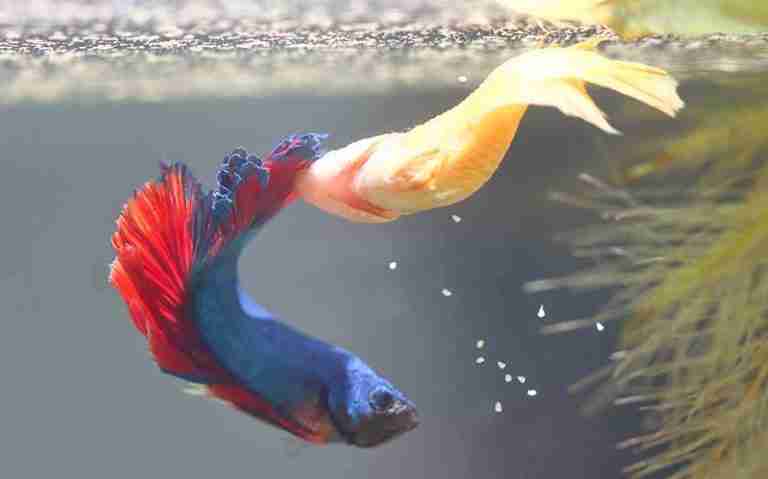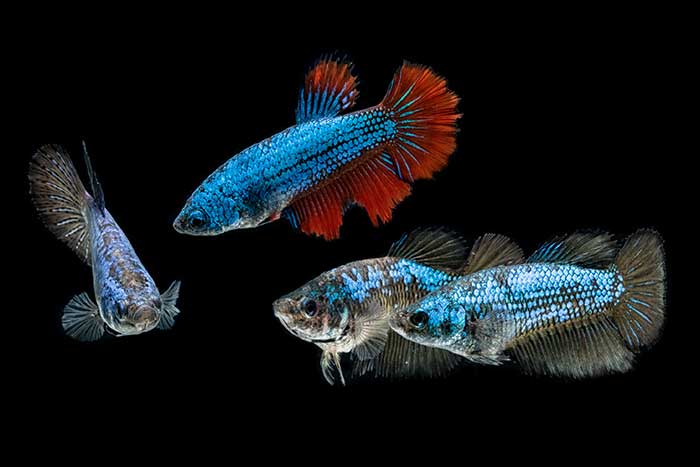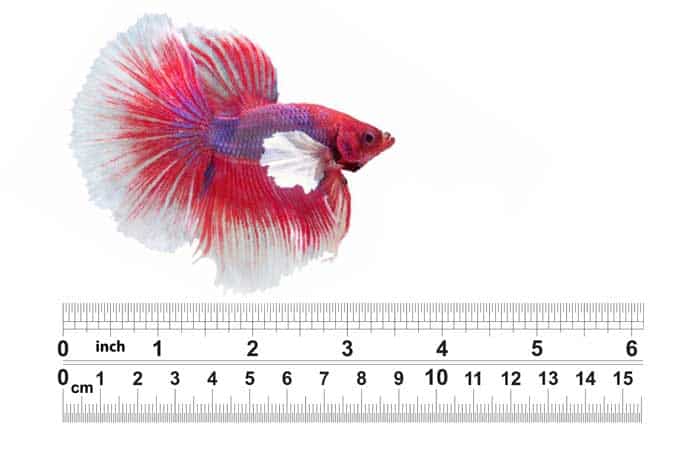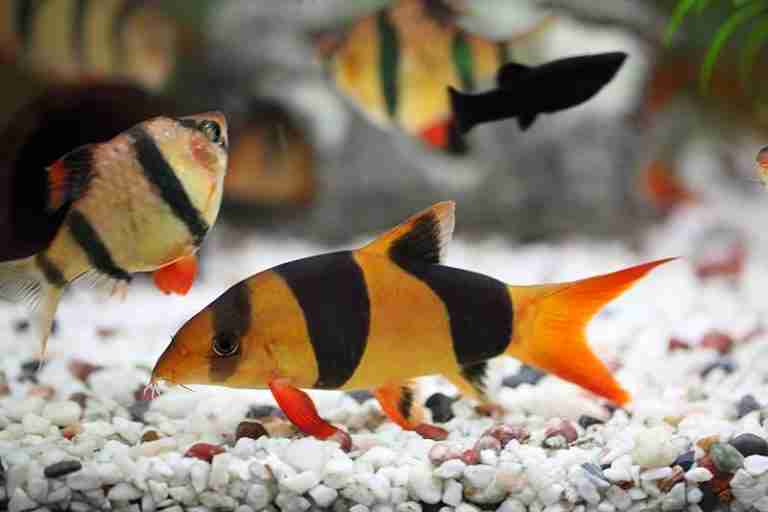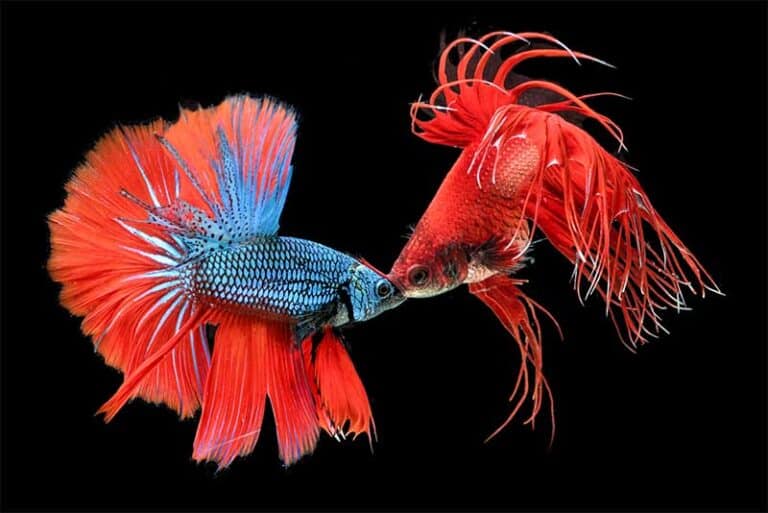How Long Do Angelfish Live (Tips to improve life Expectancy)
Angelfish are one of the most popular tropical fish kept in aquariums. They come in a wide variety of colors and can be very beautiful to watch. But how long do angelfish live? How can you increase their lifespan? In this article, we will explore these questions and more.
Freshwater angelfish are most commonly found living in the Amazon Bowl of South America. However, there are also varieties of saltwater angelfish. This article specifically covers the lifespan of freshwater angelfish.
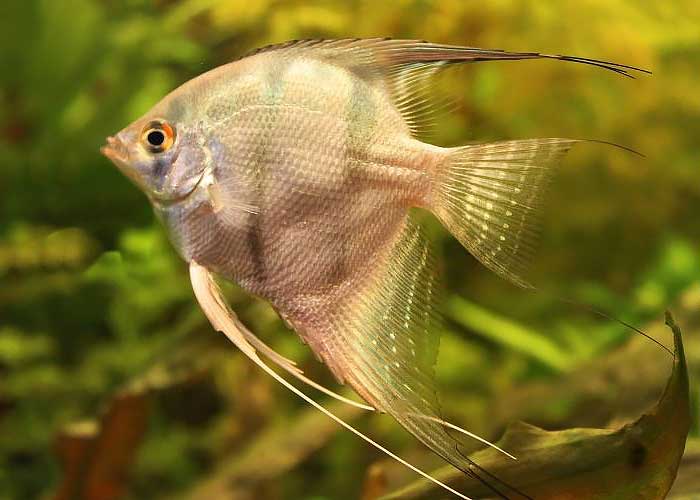
How Long Do Angelfish Live In A Tank?
Angelfish live for 10-12 years in a tank with the right care, and sometimes they can live up to 15 years. The life expectancy of an angelfish in captivity depends on many factors, such as the size of the tank, the water conditions, and the angelfish’s diet.
Because angelfish are quite hardy, they tolerate slight changes in their environment, such as temperature and water pH, but they will do best in a tank that has stable water conditions.
How Long Do Angelfish Live In The Wild?
Angelfish typically won’t live as long in the wild as in captivity, usually around 5-10 years. This is probably due to environmental factors such as climate, pollution, and predators. Angelfish in the wild do not have the same specialist care they will receive in captivity.
Environmental factors will affect the lifespan of most fish species because they are less predictable and controllable than that of an aquarium which you can keep at a constant temperature with a regular food source and regular water changes.
How To Improve An Angelfish Lifespan?
The best way to improve an angelfish’s lifespan is to provide them with a healthy diet, clean water conditions, and plenty of exercise.
Angelfish are omnivorous and will eat a variety of foods, but they should be given a high-protein diet. Commercial angelfish food is available at most pet stores, and you can give them a diet of live or frozen brine shrimp, bloodworms, or other meaty foods.
Angelfish also need clean water to thrive. Small water changes should be done at least once a week or bi-weekly to maintain good water conditions.
Angelfish need plenty of exercise to stay healthy. They should be given plenty of room to swim and should not be kept in a tank that is too small.
Angelfish Water Parameters
Maintaining the ideal water parameters in your tank will help improve your angelfish’s lifespan.
You can find the correct water parameters for an angelfish in the table below.
| Water Parameter | Value |
|---|---|
| pH | 6.5-7 |
| Water Hardness | 4-12dGH |
| Water Temperature | 75°F to 82°F 25°C to 28°C |
Diet And Feeding
Providing angelfish with a healthy balanced diet will certainly improve their lifespan and is probably the single most important aspect of maintaining healthy angelfish.
The table below provides examples of the best angelfish food to provide a healthy balanced diet.
| Food Type | Best Foods |
|---|---|
| Live Food | Live Mysis Shrimp Live Blood worms Live Brine Shrimp |
| Frozen Foods or Freeze-Dried Foods | Mysis Shrimp Blood worms Tubifex Worms Brine Shrimp Krill |
| Vegetables | Boiled, Blanched Pea Zucchini Cucumber Lettuce Aquarium Plants |
Live food will provide the most nutrition for your angelfish, but you must be careful where you purchase your food. Live food can carry parasites that can spread to your tank, potentially infecting all inhabitants. This is also true for frozen food.
Although frozen food will not be as nutrient-rich as fresh food, it is much easier to source and still provides plenty of nutrients.
Freeze-dried food benefits from being sterile due to the freeze-drying process, so it will not carry any harmful parasites or bacteria. It is the least amount of nutrients, however, if you buy good quality freeze-dried food, it will often contain added nutrients.
High-quality commercial fish flakes and pellets are another option to feed your angelfish and can be used alongside the other foods listed.
Providing a varied, protein-rich diet is most important for healthy fish.
Tank Size
A freshwater angelfish will need a minimum tank size of 20-30 gallons, and they will also prefer a taller tank due to their height.
Angelfish are not generally classed as an aggressive species, and they are typically quite peaceful, placid fish. In captivity, they can sometimes be territorial and show some signs of aggression, especially to other aggressive fish, so angelfish tanks should be larger to give them enough space to have their own territory, and other fish can easily avoid confrontations.
An angelfish aquarium should be densely planted, similar to the natural environment of the Amazon basin. Plants will provide them with places to hide if they become stressed or anxious.
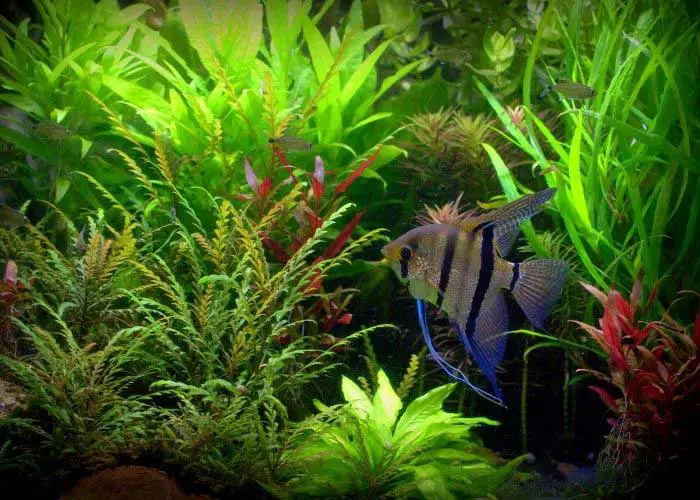
Providing a comfortable tank environment and a good selection of compatible tank mates will improve an angelfish lifespan by reducing stress.
How Many Angelfish Should Be Kept Together?
Angelfish prefer to live in small groups of 5 or 6, but they are also happy in a tank with just 1 or 2 other male and female angelfish.
When in season, angelfish can be aggressive and prone to fighting, so smaller groups will limit any aggressive behavior.
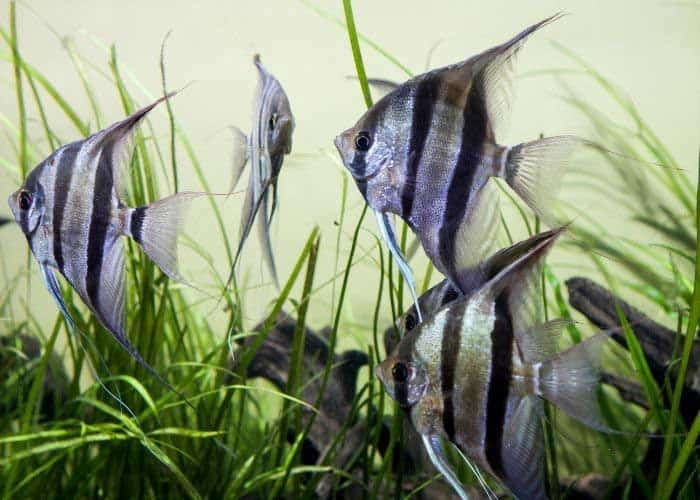
I regularly keep only 2 angelfish in a communal tank without any trouble with aggressive behavior, and they are quite social and happy together.
Do Female Angelfish Live Longer Than Male Angelfish?
There is no evidence to suggest that female angelfish live longer than male angelfish. They will both live to around 10-12 years with the right care.
Breeding can play a part in lifespan as some experts have found evidence that angelfish used extensively for breeding often live shorter lives.
Are Angelfish Hard To Keep Alive?
Angelfish are known to be pretty hardy fish that can tolerate changes to water conditions far better than some less hardy species.
Even healthy angelfish are susceptible to illness, and like all other fish, there are some specific illnesses you should look out for.
Common Angelfish Diseases
Below is a list of the most common illnesses and diseases to watch out for in angelfish.
- Angelfish Virus
- Velvet Disease (Gold Dust Disease)
- Hole In The Head Disease (Hexamita)
- Angelfish Ich or white spot
- Dropsy
- Cotton Mouth or Mouth Fungus
- Flukes
- Anchor Worms
- Popeye
The list above is not exhaustive. Angelfish are susceptible to both viruses and parasites, and many will exhibit the same symptoms, so careful research will need to be done if you intend to self-diagnose.
Diagnosing illness quickly will enable the best treatment to be administered, which will help extend your angelfish lifespan.
I have not written specifically about the above illnesses at the time of writing. I will provide a link to a symptom and treatment guide soon. Until then, this list will give you something to research.
How Can You Tell How Old An Angelfish Is?
There is no real way to tell an angelfish’s age. Angelfish are typically full-grown within their first 12 months, so it is not possible to estimate an angelfish’s age from its size.
There are a few things you can look out for that may give you an idea of the age of your angelfish.
The color and markings on an angelfish will usually fade as they get old. Color fading can also be a sign of illness, but if all else is fine and the fading color is prolonged, it would suggest your angelfish is in its later stages of life.
An angelfish’s general appearance can also be a sign of aging. Fins that are bent or crooked may indicate old age, and a general slowing down in their activity levels can indicate later stages of life.
Wrap Up
The question, “How long do Angelfish live” can easily be answered in general terms, but as you can see, there are many factors that can affect their lifespan.
We have covered all of the important factors that will help extend the life expectancy of your Angelfish. By maintaining good tank water conditions and providing them with the correct diet and feeding routine, your Angelfish will have a much happier and extended life.
Don’t forget to look out for the early signs and symptoms of illness as quick treatment is often vital to avoid permanent damage.
Happy fish keeping from Fish Keeping Academy.


